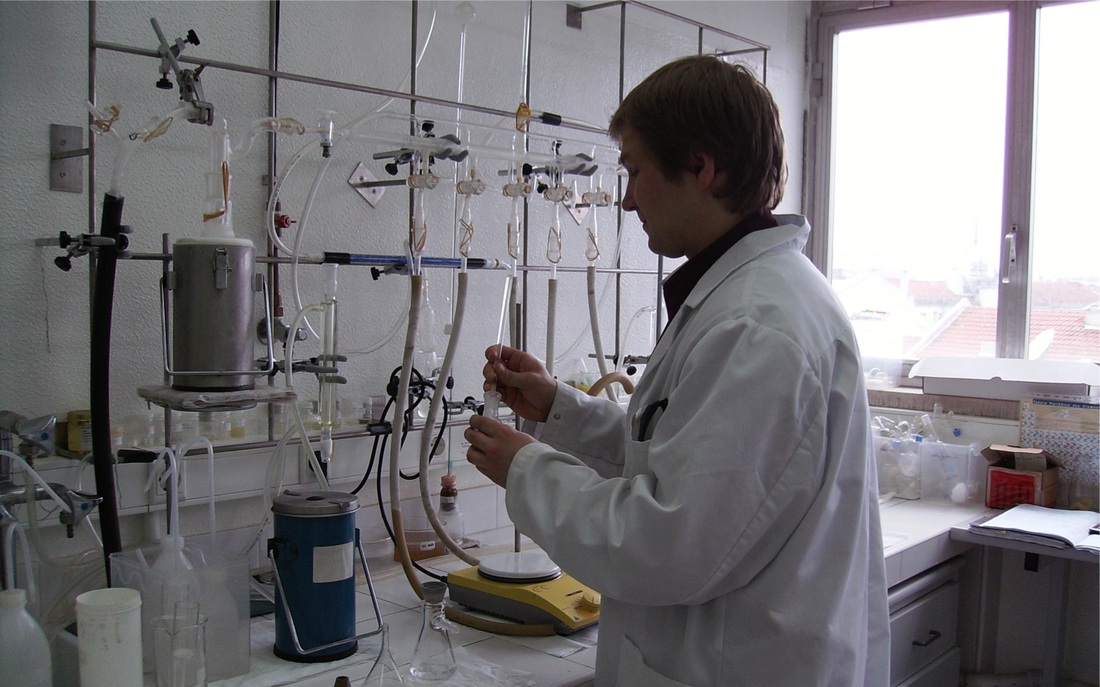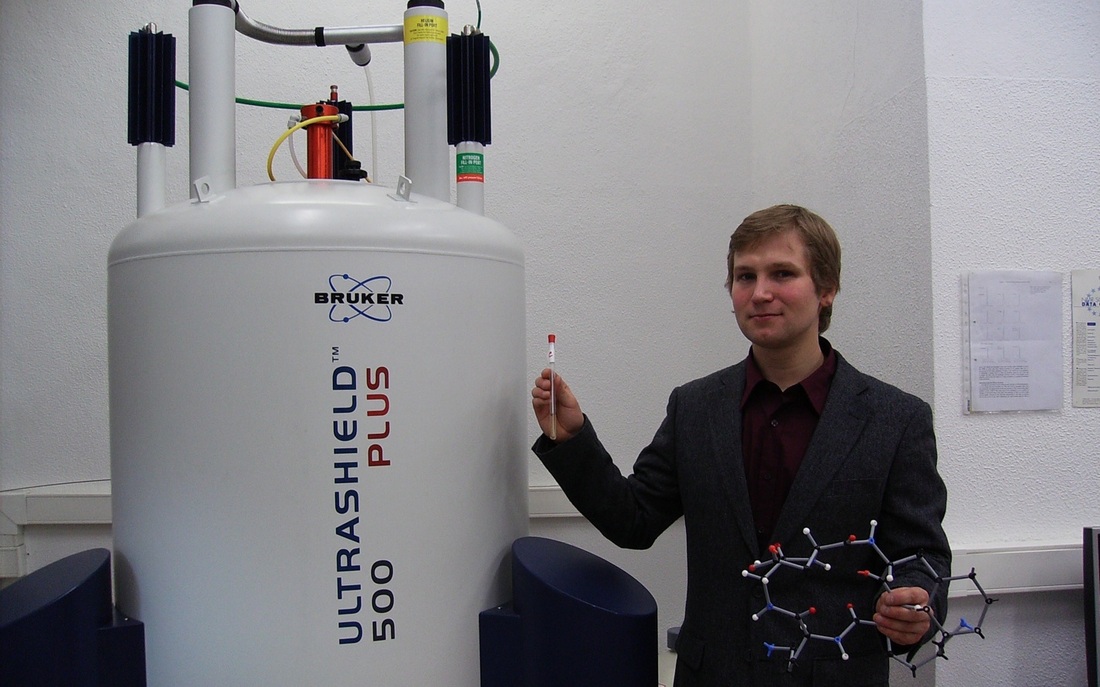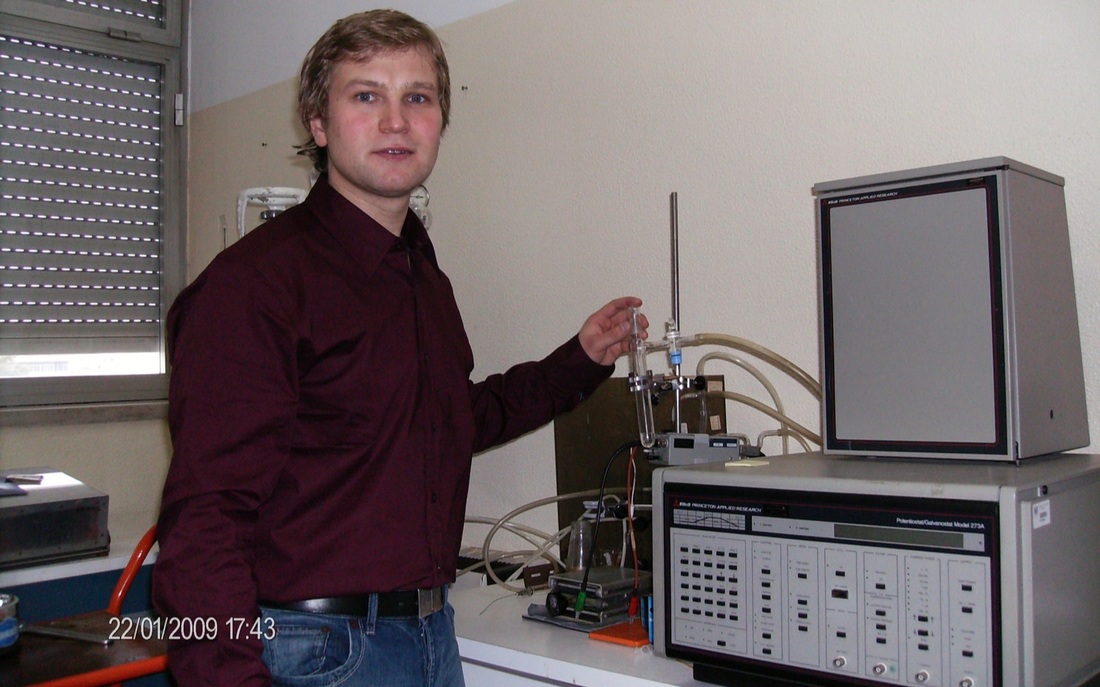|
Degrees
Ph.D. in Chemistry (2007), Technical University of Lisbon, Portugal Diploma Degree in Chemistry (2002), St. Petersburg State University, Russia Synthetic Skills Experience in preparation and handling of air sensitive, and/or unstable, and/or toxic inorganic, organic and organometallic compounds using normal and Schlenk/glove box techniques. Use of non-conventional techniques for high-pressure, focused microwave-induced and solvothermal preparation of organic and organometallic compounds. Analytical Skills
Application of multinuclear NMR methods (standard multinuclear 1D 1H, 13C, 15N, 31P, 51V, 117Sn, 195Pt, DEPT, NOE techniques; 2D methods: COSY/DQFCOSY, TOCSY, HMQC/HSQC, HMBC, HMQC-TOCSY, HETCOR, NOESY/ROESY, DOSY). Knowledge of the practical aspects of the NMR spectroscopy at the administrator/engineer level, viz. calibration of NMR probes for new nuclei, optimization of power values and pulses for new NMR experiments, software/hardware tests, advice on proper techniques selection, etc. Application of FT-IR spectroscopy; FAB/ESI/MALDI mass-spectrometry, single crystal X-ray diffraction for characterization of complex inorganic, organic and organometallic species. Application of UV and NMR spectroscopy for kinetic studies and estimate of the thermodynamic parameters of reactions in solution. Application of cyclic voltammetry and controlled potential electrolysis; application of the electrochemical methods for the environmental analysis and monitoring. Applications of HPLC/GC for the analysis and separation of the organic compounds, including environmental targets. Application of atomic emission and absorption spectroscopies for the qualitative and quantitative analysis of elements, including environmental targets. Knowledge of the practical aspects of the environmental analysis and monitoring: sampling, sample handling and preservation, methods selection, statistical analysis of the obtained results. |



